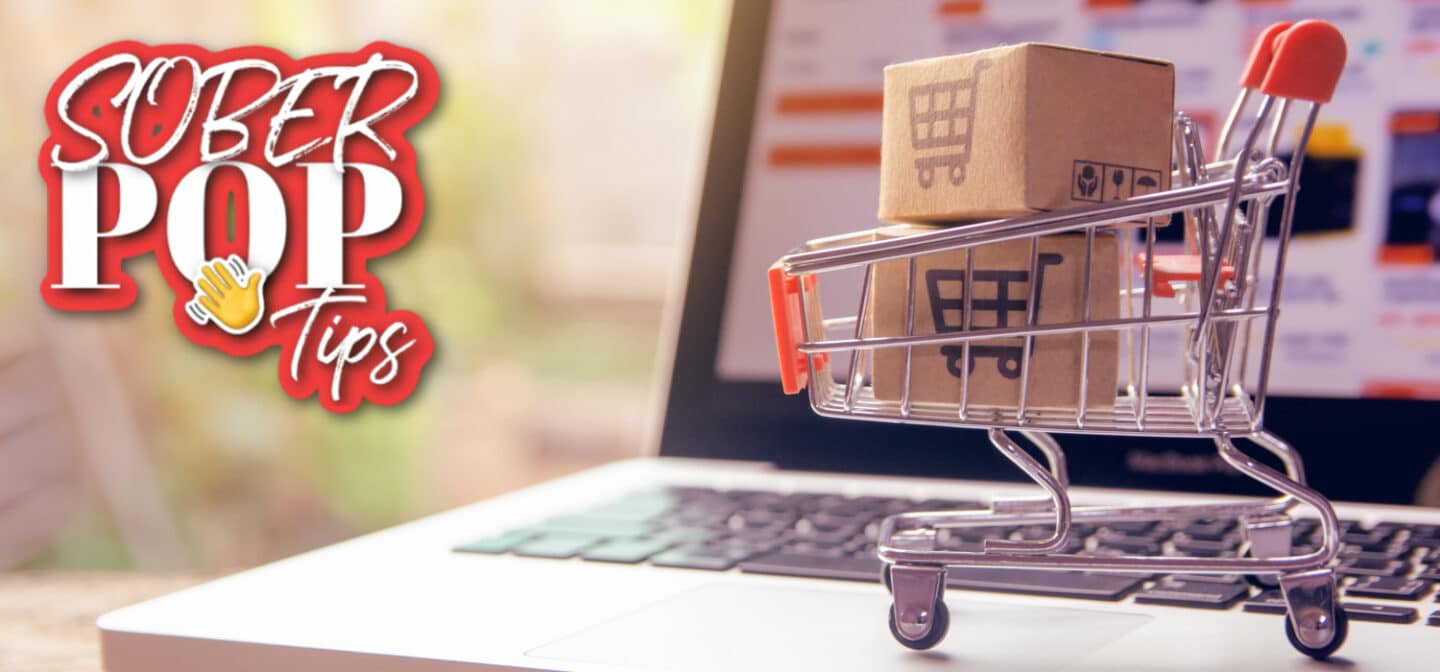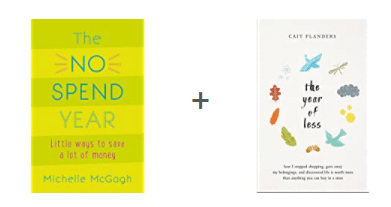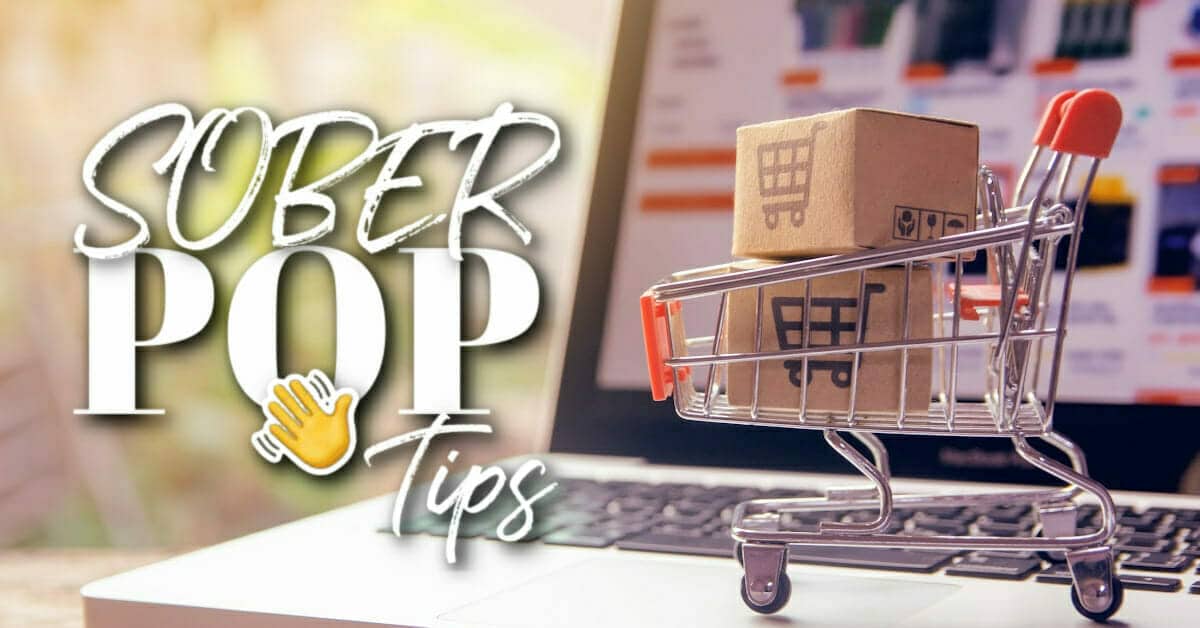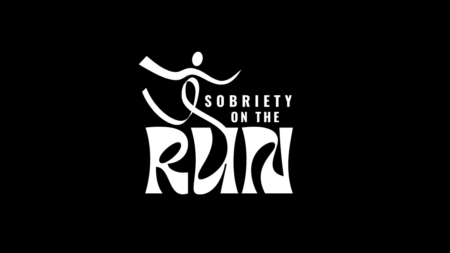
Here is a recap of How to Navigate Shopping Situations in Sobriety as discussed in the SOBER POP Tips Room on the Clubhouse App on Tuesday, June 8th, 2021. For many people in recovery, especially early recovery, the idea of the grocery store can be overwhelming. One wrong turn and you can end up in the booze aisle. For some, this can be very triggering. Depending on what state you live in, the visual triggers can be overwhelming with alcohol placement displays even near check-out registers.
SOBER POP Tips: 10 Useful Tips on Navigating Grocery Stores and Various Shopping Experiences
1.) Enter the store with the mindset of restoration. Excessive alcohol may have left you malnourished or it’s just taking a toll on your system. Focus on healthy habits and consult a dietician when needed. Build your grocery list with consultation and research.
2.) Shopping for mocktails or alc-free products? Check out our Happy Every Hour section and order online.
3.) Don’t shop hungry. Not just to save money, but it can intensify alcohol cravings. Make sure to drink enough H2O and carry a reusable water bottle with you wherever you go.
4.) Unless your physician tells you otherwise, it’s okay to have sugary drinks in the early days. Part of the withdrawal is the sugar you were used to having. Try changing one thing at a time. Remember, your recovery journey is a marathon, not a sprint. It’s okay to transition to soda or stock up on sparkling flavored waters you enjoy.
5.) Have a list, and make a plan. It helps to shop at the same places where you are familiar with the floor layout so you don’t get an itchy foot or wander off into the booze aisle.
6.) Find a store without a liquor section. Depending on the state, of course, this is easier in Kansas for example than it might be in other parts of the country. You can also shop online and then pull up the curbside services that have become very popular in the last year.
7.) Order online! If it’s too much of a temptation, use Amazon Fresh or other helpful delivery services. (Shopping with a buddy can help too!)
8.) Create a playlist or pick a podcast to help you focus. Distractions in your ears of positive songs and podcasts can really help keep you in the zone to get in, get what you need, and get out.
9.) Passing wine tastings or liquor tastings can be very triggering in early sobriety. While these are not as popular due to Covid-19, they likely will return at some point. Playing the tape through to the end on what happens when you pick up is a helpful reminder of why you started your recovery journey to begin with.
10.) Salons, Spas and boutiques can often offer up wine and even cocktails. Ask for tea or bring some herbal tea bags along with you. Remember the relaxing experience you are there for and enjoy!
SOBER POP Tips: 6 Useful Tips if You’re Struggling With a Shopping Addiction
It’s easy and very normal to switch to a new addiction when you are letting go of an old and familiar one. The dopamine that hit your brain when you #ADDTOCART is very real. If you’re not careful, you could end up buying things you don’t need, overspending, and getting yourself into debt. It’s easy to tell yourself “I deserve this because I’m not drinking.” Or, even “I can afford this because of all of the money I’m not spending on alcohol and drugs.” Practicing self-care, balance, and mindfulness is our new way of living.
1.) Use a budget and track your spending.
2.) Set limits on your spending.
3.) Address the root causes of the addictive spending with a friend, sponsor, coach, or therapist.
4.) Identify spending triggers and be aware of them.
5.) Delete problematic shopping apps.
6.) Cancel (and pay off) some credit cards.
7.) Try doing a “No Spend Month” by only purchasing actual necessities. Looking for an even bigger challenge? Try a “No Spend Year”. There are several books that encourage this practice. The No Spend Year: Little Ways to Save a Lot of Money by Michelle McGaph and The Year of Less by Cait Flanders

Resources are available
Resources Are Available
If you or someone you know is experiencing difficulties surrounding alcoholism, addiction, or mental illness, please reach out and ask for help. People everywhere can and want to help; you just have to know where to look. And continue to look until you find what works for you. Click here for a list of regional and national resources.







